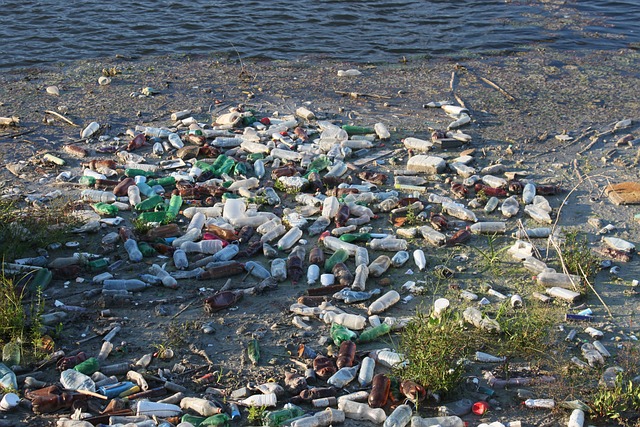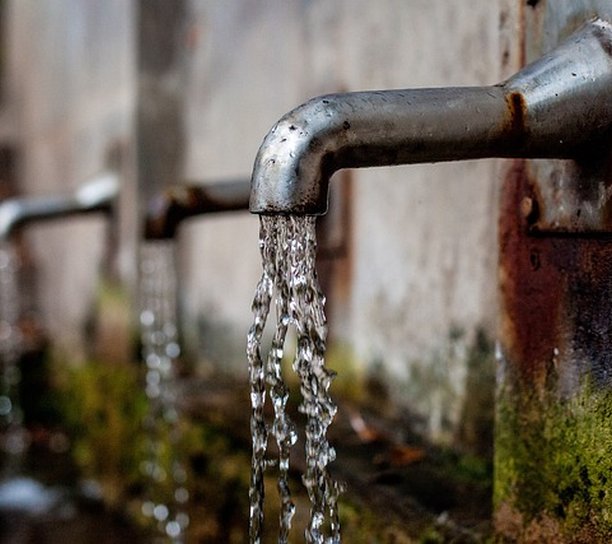[Title Image by 3345408 from Pixabay]
From bathing and drinking to flora and fauna, clean water sustains not only our existence but also shapes our planet's health. Yet, as water pollution continues to rise and seep into our waterways, so do the negative effects on human health.
Contaminated water brings forth a host of long-term issues for both our environment and human health that threaten our quality of life. Due to industrial activities and the illegal release of harmful chemicals, unsanitary water continues to infect our society with human health under threat from a multitude of diseases, illnesses and even death.
From the consumption of toxic water to the exposure to chemical-soaked fields, this article will explore the various avenues of water pollution, including what creates these toxic environments, and the long-term health implications they have. The potentially perilous water pollution effects on humans now require immediate action and widespread awareness to create a safer and cleaner environment for all.
What Is Water Pollution?
Water pollution refers to the contamination of water bodies—such as rivers, lakes, oceans, groundwater, and even drinking water—due to the introduction of harmful substances or pollutants. These pollutants contaminate the water in multiple ways, including industrial waste, agricultural runoff, improper disposal of chemicals, sewage, oil spills, and littering.
Water pollution occurs in different forms, including chemical pollution (from industrial and agricultural activities), microbial pollution (from untreated human and animal waste), and physical pollution (such as plastic debris and non-organic objects). The effects of water pollution threaten ecosystems, aquatic life, and human health, leading to waterborne diseases, toxicity from chemical exposure, and ecological imbalances.
What Causes Water Pollution?

Image by Emilian Robert Vicol from Pixabay
Understanding the forms of water pollution and their impact on human health is crucial when addressing this issue. Water pollution can typically be traced back to one or more sources, with pollutants ranging from obvious signs such as littering, to more covert types such as chemical dumping. Below are the three main categories of water pollutants and how they result in unsanitary water.
Chemical Pollution
- Industrial Discharges: Toxic chemicals and radioactive substances from industries such as mining and agriculture seep into nearby bodies of water that run to reservoirs.
- Pesticides and Fertilisers: Agricultural runoff and poor water storage facilities introduce harmful toxins - including hormones - into drinking water sources.
- Household Waste: Improper disposal of household chemicals and non-organic liquids contaminates water.
Microbial Pollution
- Bacteria and Pathogens: Industrial and Municipal wastewater and inadequate sanitation causes sewage and untreated waste to create bacterial contamination in water.
- Viruses: Water borne diseases like cholera, typhoid and E.Coli spread through contaminated water. [ref: https://www.epa.gov/wqclr/water-quality-topics-pathogens]
Physical Pollution
- Plastic and Debris: Accumulation of non-biodegradable materials such as wet wipes can result in clogging and contamination of water bodies.
- Sedimentation: Soil erosion and agricultural practices such as dredging increase sediment and algal blooms in water bodies, contaminating the water supply.
The Global Impact of Polluted Drinking Water
As water pollution increases due to an ever-expanding global population, those exposed to unclean drinking water become more vulnerable to a plethora of health issues in their lifetime, with over 1 million people dying in 2022 from illnesses related to contaminated water. [ref: https://water.org/our-impact/water-crisis/health-crisis/]
Unsafe drinking water poses the largest threat, with at least 1.7 billion people drinking water from a contaminated source in 2022. The greatest contributor to water contamination is the presence of toxic substances (such as sewage and faecal matter) that carries with it a host of microbial diseases leading to illnesses such as typhoid, cholera, and diarrhoea, causing more than half a million deaths each year. [ref: https://www.who.int/news-room/fact-sheets/detail/drinking-water]
In some countries, bottled water aims to quell the threat of ill-health from poor water quality, but with many communities lacking even basic drinking water services, the consequences of compromised human health are seemingly unavoidable and become more commonplace as years go by.
In the West, access to clean water and basic water services are an integral part of its social and economic development, but in recent years, the release of toxic substances and drinking water contaminants from industrial action forewarn an increase of numerous bacterial and chemical toxins affecting human health. As high quantities of water pollutants and toxic chemicals continue to be released into vitally needed water supplies, entire communities are now under threat of experiencing a multitude of previously low-scale illnesses.
How Water Pollution Affects Human Health
Chronic Illnesses
Exposure to contaminants like heavy metals (lead, arsenic, mercury) or chemicals (pesticides, industrial pollutants) over extended periods can lead to chronic health conditions. These may include various forms of cancer, neurological disorders, and mental health issues. [ref: https://dceg.cancer.gov/research/what-we-study/drinking-water-contaminants https://www.ehn.org/air-pollution-and-mental-health-2656823544/water-pollution-and-mental-health]
Developmental Disorders
Polluted water, particularly when consumed by pregnant women or young children, can lead to developmental delays, cognitive impairments, and birth defects due to the impact of certain toxic contaminants on foetal development or early childhood growth.
Organ Damage
Certain pollutants found in drinking water can target specific organs over time, leading to permanent damage or dysfunction. For example, the liver and kidneys play a vital role in processing and cleaning water in our bodies and thus are most at risk of damage when in contact with contaminated water. [ref: https://www.environmentalpollutioncenters.org/water/diseases/]
Weakened Immune System
Exposure to polluted water can gradually weaken the immune system, making individuals more vulnerable to infections, diseases, and a range of other health issues.
Increased Risk of Cardiovascular Problems
Persistent contact with heavy metals and chemical pollutants (especially when found in drinking water and groundwater) is associated with an increased risk of cardiovascular diseases and hypertension, and is reported to lead to Type 2 Diabetes. [ref: https://www.nejm.org/doi/full/10.1056/NEJMra2030281]
Endocrine Disruption
Some pollutants present in water sources can disrupt the endocrine system, affecting hormone regulation and potentially leading to reproductive issues, thyroid issues, and even infertility. [ref: https://www.sciencedirect.com/science/article/abs/pii/S0269749117304955]
Long-term Gastrointestinal Problems
Continuous exposure to contaminated water may lead to persistent gastrointestinal issues such as stomach ailments, chronic diarrhoea, and gastrointestinal infections. [ref: https://www.nature.com/articles/s41575-023-00791-2]
High Risk to Vulnerable Populations
Children, pregnant women, the elderly, and those with compromised immune systems are particularly vulnerable to the adverse effects of water contamination due to their susceptibility to illnesses that their bodies cannot naturally defend themselves against.
What Can Be Done to Prevent Water Pollution?
Tackling water pollution requires action on a global scale. Collaborative efforts between governments, industries, communities, and individuals to enforce strict regulations and encourage more sustainable practices to ensure access to clean and safe water for all.
Whether it be more domestic actions such as ceasing to flush any non-biodegradable or chemical substances down the toilet or sink, or implementing harsher rules and full accountability for industries such as sewage treatment facilities, the road to remove toxic chemicals from our waters and protect human health is a long and strenuous one.
The health of humanity is dependent on the health of the environment, and our planet is struggling more than ever to sustain its own healthy ecosystem. If action isn’t taken to reverse the damage and campaign for a cleaner planet, humans can expect a future with increased ill health and disease caused by an inhospitable environment.
